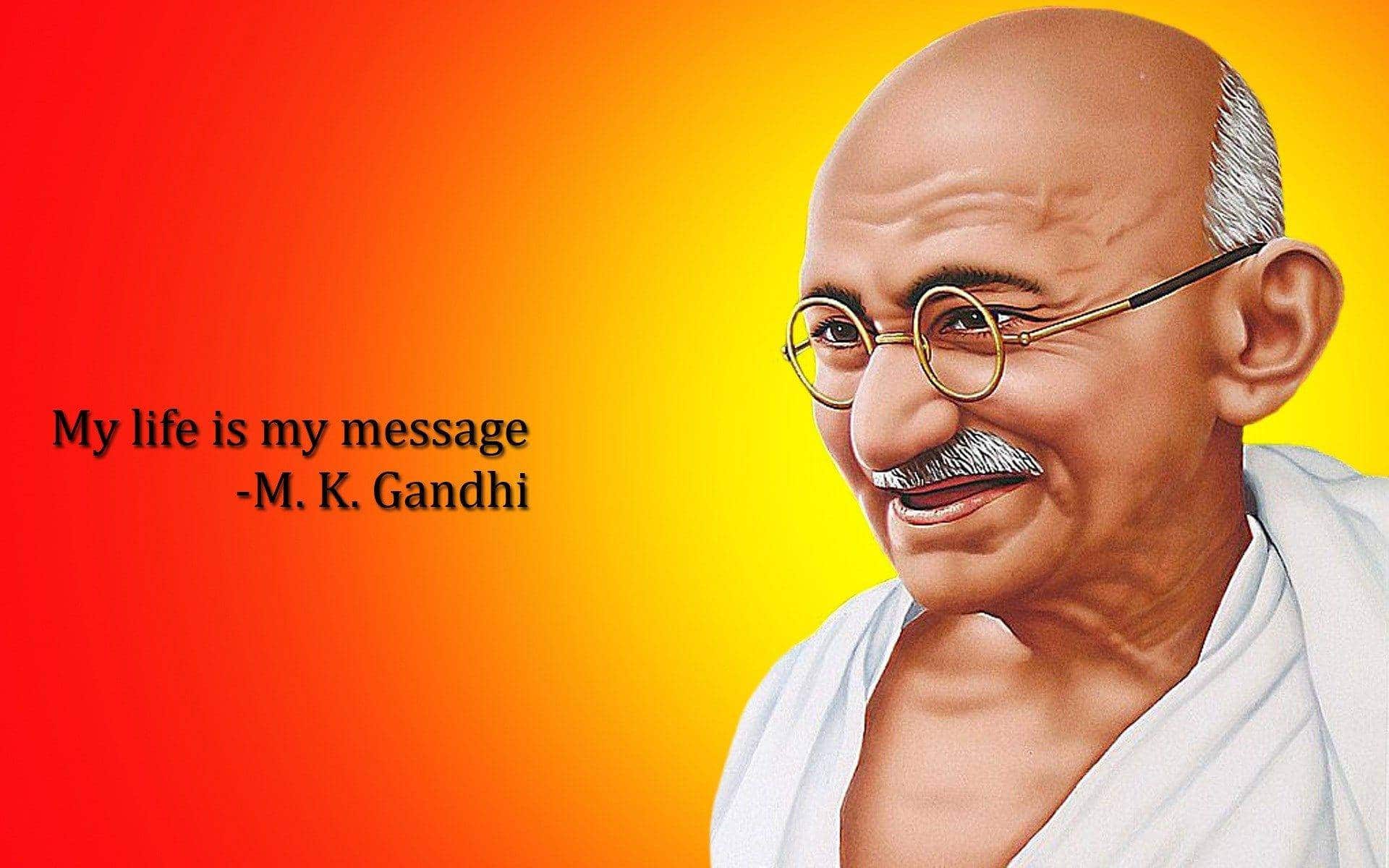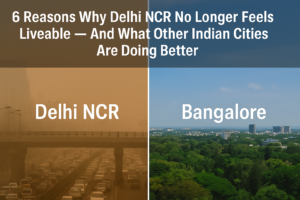Gandhi Jayanti 2024: Celebrating the Enduring Legacy of Non-Violence
As October 2nd, 2024 approaches, the world prepares to commemorate the 155th birth anniversary of Mohandas Karamchand Gandhi, affectionately known as Mahatma Gandhi. This day, celebrated as Gandhi Jayanti in India and recognized globally as the International Day of Non-Violence, serves as a poignant reminder of the power of peaceful resistance and the enduring impact of Gandhi’s philosophy on the world stage.
The Life and Times of Mahatma Gandhi
Early Years and Formative Experiences
Born on October 2, 1869, in Porbandar, Gujarat, Mohandas Karamchand Gandhi’s journey from a shy young man to the ‘Father of the Nation’ is a testament to the transformative power of conviction and moral courage. His early experiences in South Africa, where he faced racial discrimination firsthand, laid the foundation for his lifelong commitment to fighting injustice through non-violent means.
The Philosophy of Non-Violence
Gandhi’s concept of non-violence, or ‘ahimsa’, was not merely the absence of physical violence but a profound philosophy that advocated for love and understanding even in the face of oppression. This principle, coupled with ‘satyagraha’ (the force of truth), became the cornerstone of India’s independence movement and inspired countless others worldwide.
Key Movements and Milestones
Throughout his life, Gandhi led several significant movements that showcased the power of non-violent resistance:
- The Non-Cooperation Movement (1920-1922)
- The Salt March or Dandi March (1930)
- The Quit India Movement (1942)
These campaigns not only challenged British rule but also united Indians across diverse backgrounds in a common cause, demonstrating the unifying potential of non-violent struggle.
Gandhi Jayanti: A Day of National Importance
Celebrations Across India
Gandhi Jayanti is celebrated with great reverence throughout India. Government offices, schools, and many businesses close to honor Gandhi’s memory. The day typically begins with prayer meetings, particularly at Raj Ghat in Delhi, where Gandhi was cremated.
Raj Ghat: The Epicenter of Remembrance
Raj Ghat, Gandhi’s memorial in Delhi, becomes the focal point of national celebrations. The President and Prime Minister of India, along with other dignitaries, pay homage by laying wreaths at the black marble platform that marks the spot of Gandhi’s cremation. The simplicity of the memorial reflects Gandhi’s lifelong commitment to minimalism and humility.
Cultural and Educational Programs
Across the country, schools and community organizations hold special events, including:
- Essay and painting competitions on themes related to Gandhi’s life and principles
- Singing of Gandhi’s favorite bhajan, “Raghupati Raghava Raja Ram”
- Staging of plays depicting key moments in Gandhi’s life
- Lectures and seminars discussing the relevance of Gandhian philosophy in contemporary times
The Significance of Cleanliness Drives
In recent years, cleanliness drives have become an integral part of Gandhi Jayanti celebrations, inspired by Gandhi’s emphasis on cleanliness and sanitation. These initiatives not only honor Gandhi’s memory but also contribute to the ongoing Swachh Bharat (Clean India) Mission.
International Day of Non-Violence
United Nations Recognition
In 2007, the United Nations General Assembly declared October 2nd as the International Day of Non-Violence, recognizing the global significance of Gandhi’s message. This declaration underscores the universal relevance of non-violence as a means of achieving social and political change.
Global Observances
Countries around the world mark this day with events that promote non-violence, peace, and conflict resolution:
- Conferences and symposiums on conflict resolution and peace-building
- Educational programs in schools highlighting the principles of non-violence
- Art exhibitions and cultural performances celebrating peace and harmony
- Tree-planting ceremonies symbolizing growth and non-violence
Impact on International Movements
Gandhi’s philosophy has influenced numerous international figures and movements, including:
- Martin Luther King Jr. and the Civil Rights Movement in the United States
- Nelson Mandela and the anti-apartheid movement in South Africa
- Aung San Suu Kyi’s pro-democracy movement in Myanmar
- The Solidarity movement in Poland led by Lech Walesa
These movements demonstrate the universal applicability and effectiveness of non-violent resistance in diverse cultural and political contexts.
The Relevance of Gandhian Principles in the 21st Century
Addressing Contemporary Challenges
As we celebrate Gandhi Jayanti in 2024, it’s crucial to reflect on the relevance of Gandhian principles in addressing modern-day challenges:
- Environmental Conservation: Gandhi’s emphasis on simple living and minimal consumption aligns with current efforts to combat climate change and promote sustainable development.
- Conflict Resolution: In a world rife with geopolitical tensions, Gandhi’s methods of dialogue and non-violent conflict resolution offer valuable insights for diplomacy and peacebuilding.
- Social Justice: The fight against inequality and discrimination continues to draw inspiration from Gandhi’s inclusive vision of society.
- Economic Self-Reliance: Gandhi’s concept of ‘swadeshi’ (self-reliance) resonates with modern movements promoting local economies and sustainable practices.
Gandhi in the Digital Age
The advent of social media and digital communication has given new dimensions to Gandhian methods of mobilizing public opinion and orchestrating non-violent protests. From online petitions to digital awareness campaigns, Gandhi’s principles are finding new expressions in the virtual world.
Educational Initiatives and Gandhi’s Legacy
Incorporating Gandhian Values in Education
Many educational institutions in India and abroad are incorporating Gandhian values into their curricula:
- Courses on conflict resolution and peace studies
- Experiential learning programs based on Gandhi’s concept of ‘Nai Talim’ (Basic Education)
- Research centers dedicated to studying and promoting Gandhian philosophy
Gandhi and Youth Engagement
Efforts are being made to make Gandhi’s ideas relevant and appealing to the younger generation:
- Interactive museums and digital archives chronicling Gandhi’s life and philosophy
- Youth leadership programs inspired by Gandhian principles
- Social media campaigns highlighting Gandhi’s relevance in contemporary contexts
Cinematic and Literary Tributes
Films Depicting Gandhi’s Life and Legacy
Numerous films have portrayed Gandhi’s life and impact, contributing to the global understanding of his philosophy:
- “Gandhi” (1982) directed by Richard Attenborough
- “The Making of the Mahatma” (1996) focusing on Gandhi’s experiences in South Africa
- “Lage Raho Munna Bhai” (2006), a modern take on Gandhian principles
Literary Works on Gandhi
Gandhi continues to be a subject of fascination for writers and scholars:
- “The Story of My Experiments with Truth” – Gandhi’s autobiography
- “Great Soul: Mahatma Gandhi and His Struggle with India” by Joseph Lelyveld
- “Gandhi Before India” by Ramachandra Guha
These works contribute to the ongoing dialogue about Gandhi’s life, philosophy, and relevance.
Challenges to Gandhi’s Legacy
Criticisms and Controversies
While Gandhi is widely revered, his legacy is not without controversies:
- Debates over his stance on caste issues and his approach to Dalit rights
- Critiques of his views on modernization and industrialization
- Discussions about the effectiveness of non-violence in all contexts
These debates contribute to a more nuanced understanding of Gandhi’s complex legacy.
Efforts to Preserve Gandhi’s Physical Legacy
Preserving Gandhi’s material legacy poses challenges:
- Conservation of historical sites associated with Gandhi
- Maintenance of museums and archives housing Gandhi’s personal effects
- Digitization of Gandhi’s writings and correspondence for wider access
Looking Ahead: Gandhi’s Vision for the Future
Sustainable Development and Gandhi’s Ideals
Gandhi’s vision of self-sufficient villages and sustainable living practices aligns closely with the United Nations Sustainable Development Goals. His ideas on rural development, environmental conservation, and social equality continue to inspire policymakers and activists worldwide.
Gandhi in International Diplomacy
The principles of non-violence and peaceful conflict resolution championed by Gandhi remain relevant in international relations. Many countries invoke Gandhian principles in their diplomatic efforts and peace initiatives.
Conclusion: The Eternal Flame of Non-Violence
As we commemorate Gandhi Jayanti in 2024, we are reminded that the power of non-violence is not confined to history books but remains a vital force in our contemporary world. Gandhi’s life and teachings continue to inspire individuals and movements across the globe, offering a beacon of hope in times of conflict and division.
The celebration of Gandhi Jayanti and the International Day of Non-Violence is not merely an act of remembrance but a reaffirmation of our collective commitment to peace, justice, and human dignity. It challenges us to apply Gandhian principles creatively to the unique challenges of our time, fostering a world where differences are resolved through dialogue and understanding rather than force.
As we look to the future, Gandhi’s words echo with timeless relevance: “Be the change you wish to see in the world.” This simple yet profound statement encapsulates the essence of Gandhi’s philosophy and serves as a call to action for each of us to contribute to a more peaceful and just world.
In celebrating Gandhi Jayanti 2024, we honor not just a historical figure but a living ideal – the enduring power of non-violence to transform individuals, societies, and the world at large.
Also read latest blog: Donald Trump Vows to Prosecute Google if Elected in 2024: A Bold Move or Baseless Claim?



